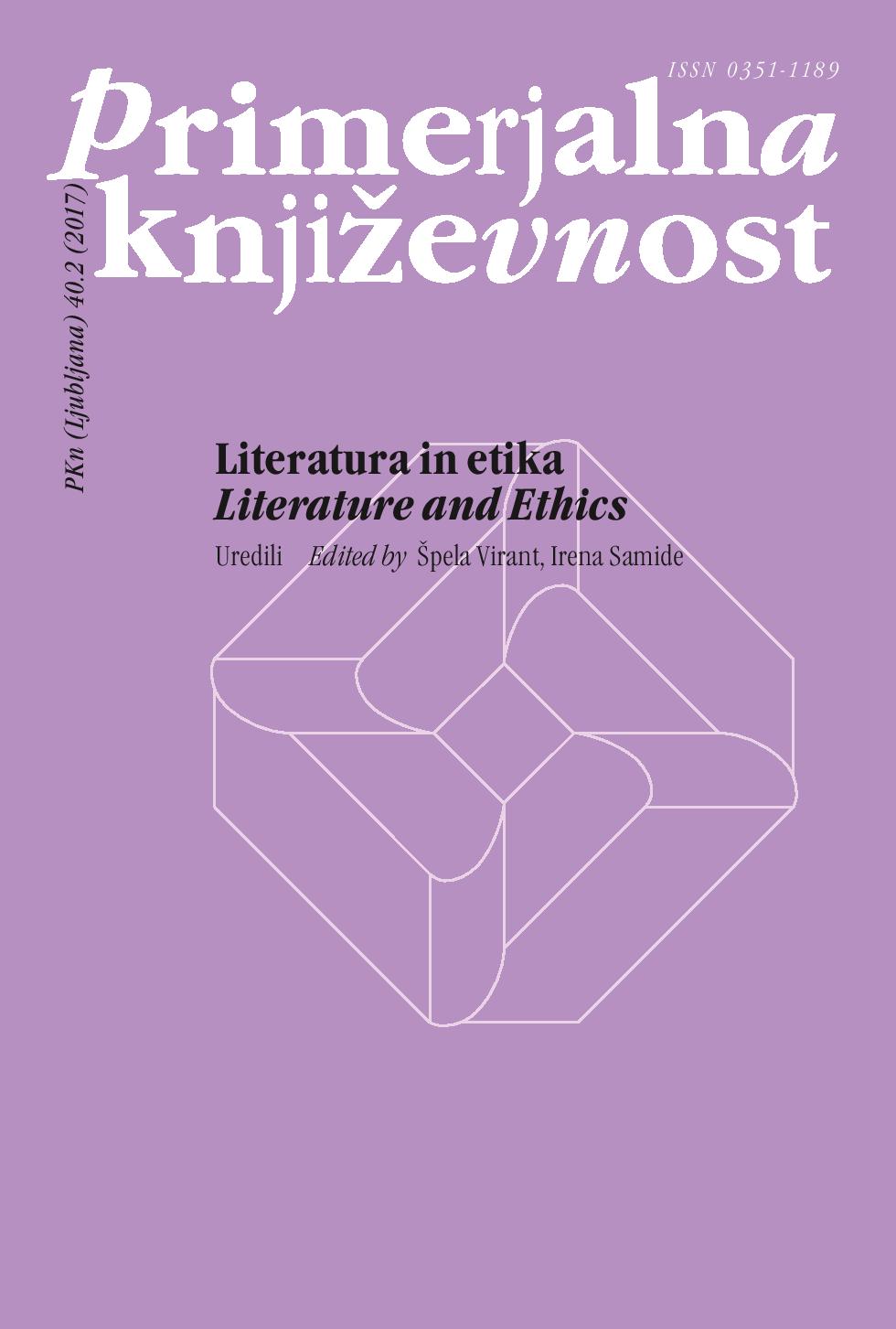What Makes a Good Book? Bonae literae in Twenty-First Century
Keywords:
literature and ethics, literary canon, literary evaluation, ethics and aesthetics, aesthetic experience, subjectivity, freedom, metapolitics, modernityAbstract
The first part of the article analyses the term bonae literae that leads us to the core of the problem of good book before the period of aesthetic separation that occurs at the end of the eighteenth century. Its second part attempts to demonstrate that even in the case of fragmented literary canon we often repeat the same “elitist” operation of power we criticize. Long before the emergence of modern literary studies organized through university departments and research institutes, properties of the good book were related to the evaluation of its rhetorical qualities, its dependence on poetic tradition and, above all, on its moral qualities. In twenty-first century there is no single criterion by which we can assess whether a book is good or not either in terms of its aesthetic or ethical properties. Thus, it seems that the answer to the question of good book would be as simple as it is paradoxical: there are good books and good books, old and new, classical and modern, good foreign and good domestic books, mostly written by great novelists and only few by great poets. In fact, the answer to the question of good book is problematic because it is difficult to find the clip that connects individual experience of the text and experience in general. Of course, the result is not disappearance of the concept of goodness (it still has certain content) but rather its vagueness. Therefore, caution is always needed in any generalizations, regardless of whether we generalize culturally or multiculturally. However, it appears that there still exists a small, almost invisible residuum of Erasmus’s view of bonae literae in the fragmented contemporary literary canon: belief in the idea that literature has a value in itself.References
Booth, Wayne C. “Ethics and Criticism.” The New Princeton Encyclopedia of Poetry and Poetics. Eds. Alex Preminger and T. V. F. Brogan. Princeton, NJ: Princeton University Press, 1993. 384–386.
Bowie, Andrew. Aesthetics and Subjectivity: From Kant to Nietzsche. Manchester, New York: Manchester University Press, 2003.
Derrida, Jacques. “Passions: ‘An Oblique Offering.’” On the Name. Ed. Thomas Dutoit. Stanford: Stanford University Press, 1993. 1–31.
Eagleton, Terry. Literary Theory: An Introduction. Minneapolis: University of Minnesota Press, 2008 (1983).
Frank, Manfred. Der kommende Gott. Vorlesungen über die neue Mythologie I. Frankfurt am Main: Suhrkamp, 1982.
Genette, Gérard. The Aesthetic Relation. Ithaca, New York: Cornell University Press, 1999.
Joshua Landy. “A Nation of Madame Bovarys: On the Possibility and Desirability of Moral Improvement Through Fiction.” Art and Ethical Criticism. Ed. Garry L. Hagberg. Chichester: Blackwell, 2008. 63–94.
Marino, Adrian. The Biography of “the Idea of Literature” from Antiquity to the Baroque. Albany: SUNY Press, 1996.
Montesquieu, Charles Louis de Secondat Baron de. The Complete Works of M. de Montesquieu. London: T. Evans, 1777, 4 vols. Vol. 4. Web. 26 February 2017. http://oll.libertyfund.org/titles/864.
Newton, Adam Zachary. Narrative Ethics. Cambridge, MA, London: Harvard University Press, 1997.
Rancière, Jacques. The Politics of Aesthetics: The Distribution of the Sensible. London, New York: Continuum, 2004.
– – –. “The Thinking of Dissensus. Politics and Aesthetics.” Reading Rancière. Eds. Paul Bowman and Richard Stamp. London, New York: Continuum, 2011. 1–17.
Robson, Mark. “‘A Literary Animal’: Rancière, Derrida, and the Literature of Democracy.” Parallax 15.3 (2009): 88–101.
Rosso, Stefano. “An Interview with Paul de Man.” Paul de Man. The Resistance to Theory. Minneapolis: University of Minnesota Press, 1986. 115–121.
Shaftesbury, Anthony Earl of. Characters of Men, Manners, Opinions, Times etc. 2 vols. Gloucester, MA: P. Smith, 1963.
Watts, Philip. “Heretical History and the Poetics of Knowledge.” Jacques Rancière: Key Concepts. Ed. Jean-Philippe Deranty. Durham: Acumen, 2010. 104–115.


